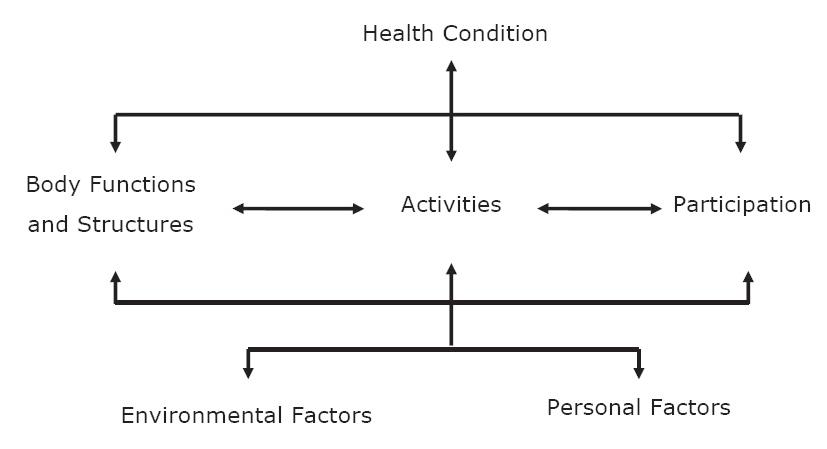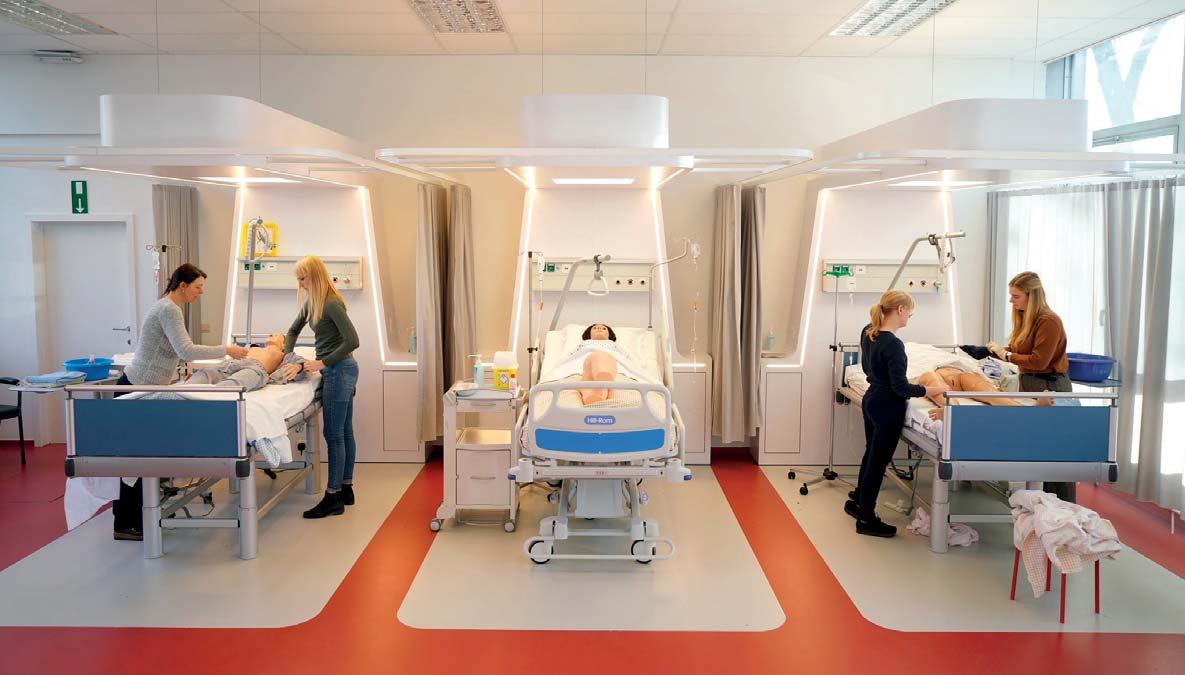
4 minute read
27
by 5rXobdlLrFp
Howest Research Research as valorisation and service tool
Howest Hogeschool West-Vlaanderen is a creative, innovative and enterprising university of applied sciences with campuses in Bruges, Kortrijk and Oudenaarde. Research occupies an important place via Howest Research.
Advertisement
The research centre combines knowledge with experience, preferably works on an interdisciplinary basis and constantly challenges employees and researchers to establish new connections. For Howest, research is a means of valorisation and service. Within Howest Research, various research clusters are active, including one specifically for healthcare:
ICF – Lab: was founded in 2014 from the bachelor programme Social Work. ICF (International Classification of Functioning, Disability and Health) is a framework and classification system developed by the World Health Organisation (WHO). The ICF Lab aims to provide customised support to field workers with the implementation of ICF and to promote collaboration between sectors and organisations. ICF offers support in understanding the functioning of people from a holistic perspective with attention for the physical aspect, the way in which the individual participates, the context of that individual, etc. The IFC-Lab expertise and training centre maps how ICF is used and what the needs are for its implementation in the broad field of healthcare, wellbeing, employment and education.
In an initial phase, the literature was searched to identify the knowledge available at international level on the use of ICF. The project staff attended international meetings on ICF amendments and ICF education and training. Furthermore, preliminary research was carried out to map the use and implementation of ICF in the ambulant revalidation sector.
As in other universities of applied sciences, ICF is an integral part of the curriculum of several study programmes offered by Howest. The ICF-Lab identified the position of ICF within the various study programmes and the associated needs and demands. To learn ICF in a qualitative and proper manner, employees of the ICF-Lab and lecturers of other programmes were trained to become certified ICF trainers. ICF Lab employees participate in the Flanders ICF platform.
Vital Cities: is an interdisciplinary research cluster led by Sports and Exercise, together with Social Work and Applied Health Sciences. Vital Cities explores how the physical and social environment consciously and unconsciously encourages people to opt for a low-threshold way of moving; the interfaces between sports and health policy, social policy and other policy areas; the integrated approach to mobility; the organisation of public space, and social innovation using sport and exercise as a tool. In practice, they work with various central cities, with experts being used to analyse public data, participation processes, for process guidance and advice on the subject of activity-friendly cities.

Sim-O (Simulation education) is situated within the Nursing Study programme. Realistic skills training and clinical reasoning are the key focal points. Students are trained to become reflecting professionals that actively think about patient care and their own role in this process. They learn how to understand the present and future condition of a patient through clinical reasoning. The resultant nursing actions are based on evidence-based and high-quality interventions that also focus on relational skills.
Howest employs different forms of simulation education of ascending complexity. They all involve supervised interaction in simulated, realistic, and often immersive situations. Technology supports the learning process, for example by live streaming the simulations and capturing and annotating the simulations for subsequent debriefing. The focus is on achieving maximum high fidelity. To this end, Howest Hospital is used and students work with simulation patients along with (high-tech) simulation manikins where necessary. The technology supports the feeling of reality, also because no third parties need to be present in the rooms.

tools, but these do not always meet specific user demands: this is the field in which D4E1 carries out its research. Using co-design, students, project developers and users develop new devices and new products. Starting from a pilot project launched in 2019, a community platform is being developed to promote exchange.

One of the D4E1 projects is MakeAbility, a collaboration with Designregio Kortrijk and Heilig Hart (care centre for people with a disability) in Kortrijk. The BUDAlab of Designregio Kortrijk provides its premises and production machinery; H. Hart brings occupants in contact with occupational therapy students and makers to provide them with unique support in achieving their specific goals, and Howest facilitates the process by promoting open-design prototypes and providing solutions in collaboration with the students. The fact that these partners are housed within the same building, is a priceless asset for such make projects. At Heilig Hart, for example, we have a Multiple Sclerose patient who can still independently walk to Buda Kitchen, for which purpose he has, together with the Living Lab, developed a tray specifically tailored to his rollator.
D4E1 (Design for Everyone) is a partnership between the programmes Industrial Product Design and Occupational Therapy. Individuals with restrictions have access to a variety of general
Howest Marksesteenweg 58 - B-8500 Kortrijk Tel.: +32 (0)56 24 12 90 E-mail: research@howest.be http://www.howest.be










